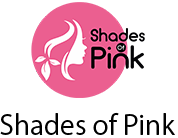Personal branding is about taking responsibility over how you present yourself. If you strive to position yourself as an expert or become an influencer within your niche, self-branding can help increase your reputation as a leader. By showcasing unique character traits and having an active presence online, you can work towards building a personal brand that resonates with people all over the world.
What is Personal Branding?
Personal branding is the practice of creating a brand around a person rather than a business entity. Personal branding is used to help further people’s careers by positioning them as an expert within an industry. By developing a personal brand, a person can grow their social following to help them secure a better job, sell more products in their business, and increase better opportunities in their career. Building a personal brand is not something that happens overnight, it can take lots of planning and months of hard work to start seeing the results; sometimes you need to improve your personal brand after receiving feedback. This type of branding can also be called self-branding, and these will be used interchangeably in this article to mean the same thing.
To grow your own personal brand, you can write a personal brand statement. A personal brand statement sets out who your audience will be, the value you want to give to your audience, and why people should follow you (your USP). While building your personal brand, you should pull from this 1-2 sentence statement to ensure that you are remaining true to it.
Why is Personal Branding Important
Personal branding is important because it helps give a person more credibility. It’s never been more competitive to land a new job or earn a paycheque. With more people building personal brands, you need to put yourself out there to get noticed. Personal branding can let recruiters find experts like you with ease, especially if you’ve been blogging brand yourself. If you’re trying to land a higher position at a new company, you can showcase key data such as the number of followers you have, how much traffic your website gets or other vital metrics which can give you a competitive advantage over other candidates. Think of it almost like an online portfolio about yourself. Branding yourself allows more people to get to know who you are and how you bring value.
It can also help you land new opportunities like business deals or marketing partnerships that you wouldn’t otherwise have, especially if you’re a person of influence. Self-branding instills trust and credibility in your knowledge and your abilities, so companies know that partnering with you will improve their brand awareness. Branding yourself in an authentic way by showing your personality is an excellent way of differentiating yourself from others in your field and developing your personal brand. We will talk more about this later.
How to Improve Your Personal Brand
Once you have started to work on your personal branding, feedback and ensuring your self-brand is aligned with your personal branding statement will help you improve on your progress. Personal Branding has been hugely successful for many different people, but without your personal branding statement, it can be hard to know when you have achieved success in your endeavors. It is essential to know what progress looks like to improve your personal branding.
Follow these steps to improve your personal brand.
- Research and create your personal branding statement: Define your audience at this stage and audit competitor that may exist for you.
- Build a personal branding strategy: Plan how to engage with your target audience and define what success will look like for you in two months, nine months, two years.
- Monitor your personal brand engagement: Promote positive participation and have a plan of action for negative remarks.
- Develop your personal brand: Aim to share your personal brand through social media, networking, outreach, and speaking opportunities. Consider blogging, vBlogging, Podcasts and other ways that you could promote your personal brand in a way that your audience will consume the content quickly.
- Have a communication plan: Controlling your presence online can be time-consuming so this plan will help you with negative backlash and help you to easily provide information to partners that you will work with down the line.
- Measure your success regularly: Set some KPIs for personal brand success so that you know you are heading in the right direction. Celebrate even small wins to remain motivated to achieve more.
So after doing all this how do you know if you have been successful in building a personal brand? A few valuable KPIs include:
- When a sale converts through your blog
- When you are asked to speak at an event or on a podcast
- When someone refers you to a potential client
- When a publication reaches out to invite you to guest blog
- When people start mentioning you online, on social media, their blog or other important media
Where Personal Branding Has Not Been Successful
Branding yourself is not an easy feat. It is time-consuming, slow and sometimes hard to stomach. Receiving negative feedback online can knock you even if you have a great communication plan, and sometimes you don’t feel like being the brand you have built. We highlight a few things to consider when branding yourself so that you can improve your self-brand quickly.
- Ignoring Other Influencers: Chances are you are not the only person in your industry building their personal brand, and others have been there longer. Do your research to make sure what you aim to achieve has not been done before. List your competitors, monitor them often to know what they are doing and see if you can borrow an idea or two off of them. Identify potential partners who you can reach out to and ask advice, so you don’t waste time on worthless ventures.
- Ignoring Your Followers: Once you have built even a small following, make sure you listen to what they are saying. If you promote a product and they don’t like it, find out why and decide if it is the best product to partner with. Read the comments after your social media posts to get a good idea of what your following enjoys and use a search engine to search your name online. You might uncover something about yourself that you didn’t know about before.
- Generating Subpar Content: Slacking off is never the right choice, especially when you are trying to build a brand around your knowledge in the area. Keep yourself in tune with your industry and if you are not a great writer, choose a different medium to promote yourself or hire a freelancer to help you up your game.
- Branding Yourself Wrong: Without the right research you can end up creating a personal brand that nobody wants to get behind. If your industry is old fashioned and you want to breathe life into it, make sure to research if this will be met with positivity. Go out into the industry and ask the hard questions first before diving into branding yourself the utterly wrong way. It is important to mention here that your personal brand should be your true self and not something that you create. The more natural you are, the easier it is to remain consistent over time.
- Not Being Consistent: Being consistent is the most critical element of self-branding. People who change their belief system at the drop of a hat cannot be trusted in what they say in their content. Trust is ultimately what followers want. Followers identify with specific thought structures, and they follow people who think similarly to them. If you change these fundamental beliefs, followers will not trust in your personal brand any longer.
- Forgetting The Longer Term: For a personal brand, long-term is essential so you know where your brand is going. If you plan to provide how-to videos for makeup with your audience being beginners or young people interested in improving the makeup abilities do you want to advance these videos long term as your followers advance, or will you be happy to remain at the same level, always providing beginner tutorials? These things should be thought about in the early stages of your planning process so you can slowly move in the right direction.
This Content has originally written by Nicole Martins Ferreira and published on June 28, 2021. No Copyright/IPR breach is intended.
 Shadesofpink.in A Women's World By Women
Shadesofpink.in A Women's World By Women




